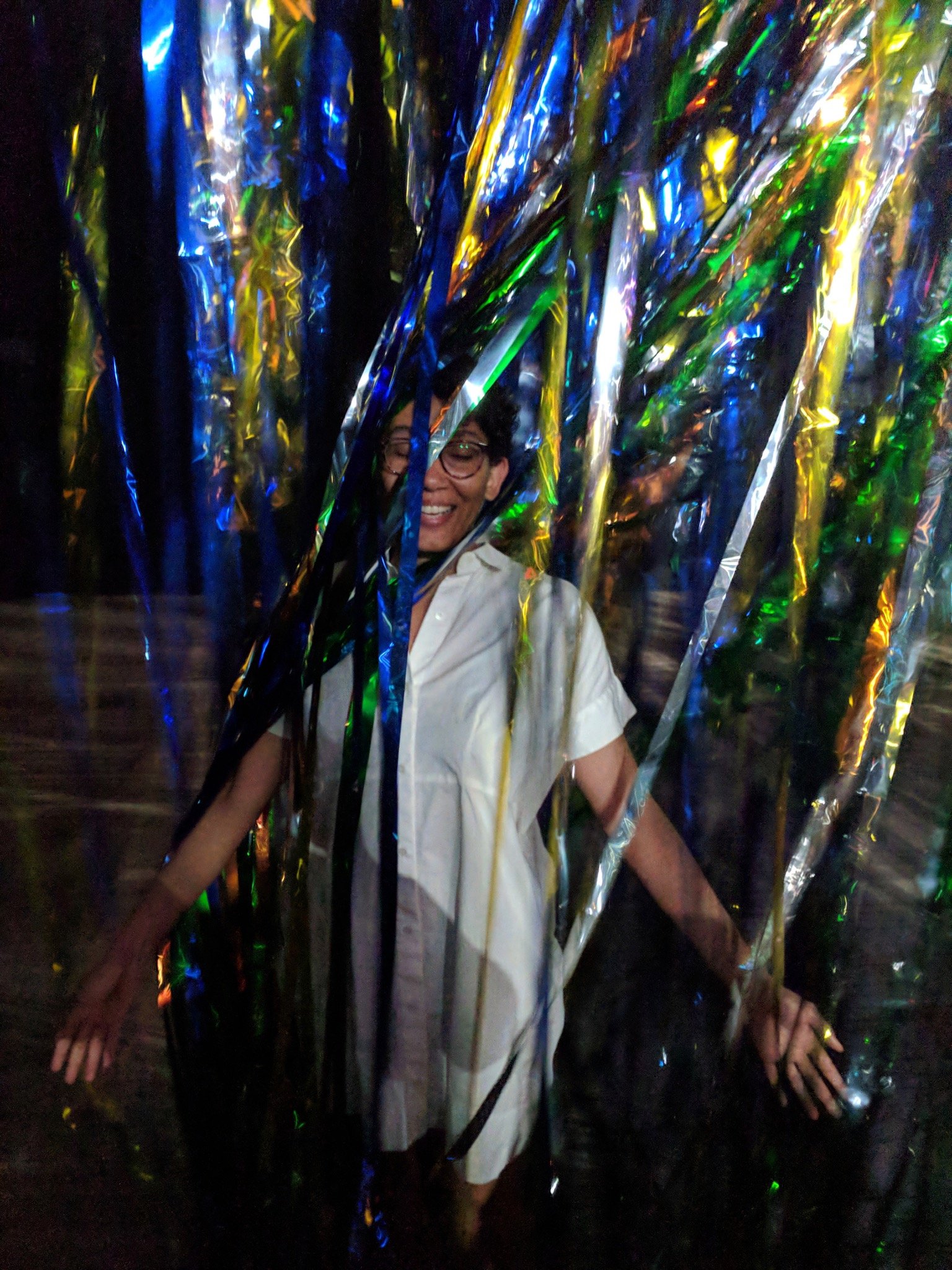
Scholar of Black feminism, Queer of color critique, visual studies, and sensation
Between Shadows and Noise: Sensation, Situatedness, and the Undisciplined
Between Shadows and Noise (Duke University Press, 2024) offers a black feminist analytic for rethinking what constitutes embodied knowledge. It uses these methods to feel the sensual dimensions of art, so that we can think about experience differently. It is also a meditation on the Caribbean. You can read the introduction on the Duke site.
Sensual Excess: Queer Femininity and Brown Jouissance
In Sensual Excess (NYU Press, 2018), Amber Jamilla Musser imagines epistemologies of sensuality that emerge from fleshiness. To do so, she works against the framing of black and brown bodies as sexualized, objectified, and abject, and offers multiple ways of thinking with and through sensation and aesthetics. Each chapter draws our attention to particular aspects of pornotropic capture that black and brown bodies must always negotiate. Though these technologies differ according to the nature of their encounters with white supremacy, together they add to our understanding of the ways that structures of domination produce violence and work to contain bodies and pleasures within certain legible parameters.
Sensational Flesh: Race, Power, and Masochism
Sensational Flesh (NYU Press, 2014) uses masochism as a lens to examine how power structures race, gender, and embodiment in different contexts. Drawing on rich and varied sources, Musser renders legible the complex ways that masochism has been taken up by queer, feminist, and critical race theories. Furthering queer theory’s investment in affect and materiality, she proposes “sensation” as an analytical tool for illustrating what it feels like to be embedded in structures of domination such as patriarchy, colonialism, and racism and what it means to embody femininity, blackness, and pain. Sensational Flesh is ultimately about the ways in which difference is made material through race, gender, and sexuality and how that materiality is experienced.


